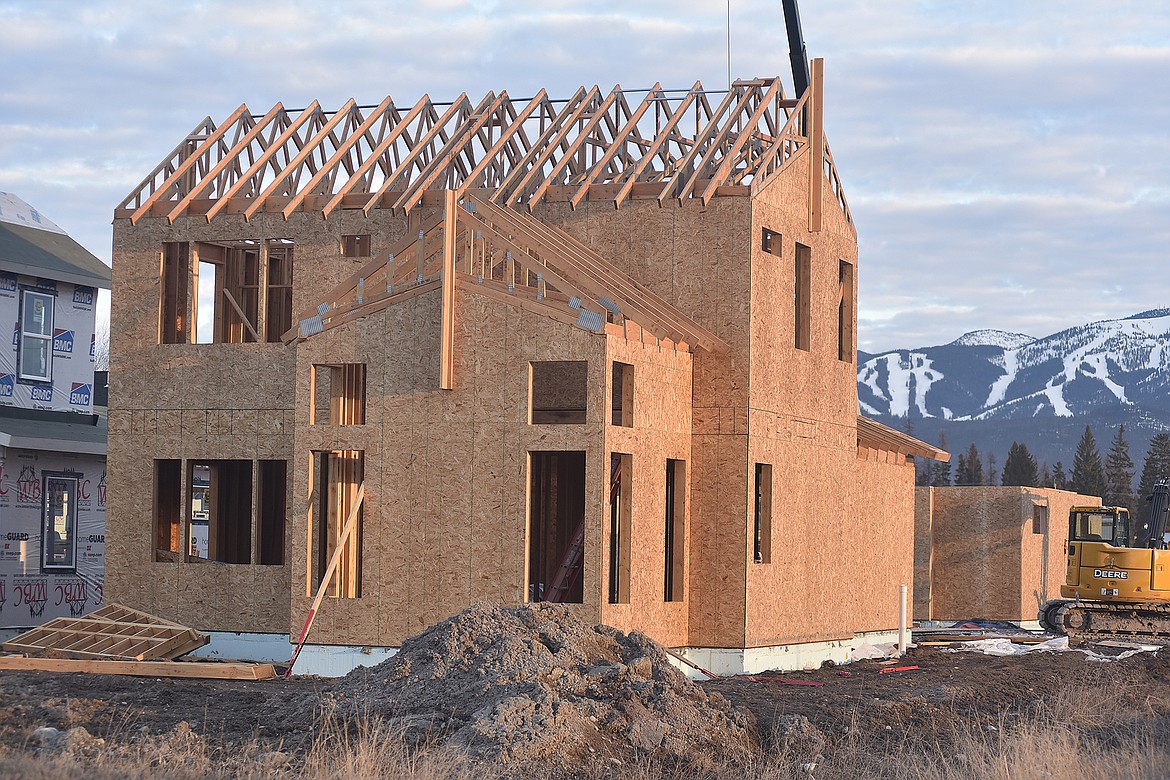Whitefish nonprofit enters ongoing lawsuit over housing bills
A Whitefish nonprofit organization that advocates for affordable housing has joined a lawsuit over four new housing laws being challenged in district court.
Shelter WF on Jan. 17 filed a motion to intervene as a defendant in the lawsuit filed by a coalition of homeowners against the state in Gallatin County District Court.
The homeowners, known as Montanans Against Irresponsible Densification or MAID, are challenging a quartet of bills aimed at addressing the affordable housing crisis in the state. A portion of the lawsuit has already been appealed to the Montana Supreme Court.
Shelter WF President Nathan Dugan serves on the governor’s Housing Task Force which served a role in getting the challenged laws through the 2023 legislative session.
“Montana needs these laws on the books,” Dugan said in a statement. “They were crafted through compromise and consensus, backed by the vast majority of both Democrats and Republicans in the Legislature, and are essential to ending Montana's shortage of affordable homes while preserving our rural open spaces.”
Shelter WF became a leading voice for pro-housing policy during the session, the nonprofit’s attorney Jesse Kodadek with Parsons Behle & Latimer of Misoula, notes in court documents and is therefore uniquely situated to defend the laws. Shelter WF is also concerned with some of the state’s arguments in the case and while there is time to raise those issues, the documents note, “the fact is the new laws that form the largest body of Shelter WF’s work are now in peril.”
MAID — which is made up of members who reside in various Montana cities including Bozeman, Whitefish, Kalispell, Missoula and Billings — says that while affordable housing is a problem in the state, the bills not only do nothing to directly address the housing problem, they also violate several constitutional rights.
“Nor is there any guarantee, or even likelihood, that any new housing, if any, will be ‘affordable.’ Instead, the attitude of the governor’s Task Force, expressed by one of its members was a ‘build more’ solution, relying on the assumption that, with more houses built, prices will go down,” MAID’s attorneys write in arguments.
“[The challenged bills] are unconstitutional as an improper attempt to impose ‘top-down’ zoning and preempt local control and authority and compel local governments to violate public participation constitutional requirements and expose themselves to liability for constitutional violations of these citizens’ right to know,” the plaintiffs argue.
Attorneys for the state argue that the plaintiffs offer only “generalized fears and speculation” about the effects of the bills, and counter claims of violating constitutional rights.
“While the members of the Plaintiff LLC may not want housing developments to block their views, lawful development of neighboring properties is not a legal harm sufficient to confer standing, especially where Plaintiff points to no actual, imminent housing projects affecting its members,” court documents state.
A theme of the plaintiff’s argument is that the state is improperly taking away municipalities’ power, the state says, however, “This ignores that the source of local power is the State.”
THE FOUR bills pertain to zoning and land use regulations.
Senate Bill 323 requires municipalities with a population over 5,000 to allow duplexes in areas now zoned for single-family residences. Senate Bill 528 requires all cities to allow accessory dwelling units on lots located in areas zoned for single-family residences.
Senate Bill 245 requires cities of 5,000 or more to allow mixed-use and multiple-unit dwellings in commercial areas.
The Montana Land Use Planning Act, or Senate Bill 382, requires certain local governments to engage in a massive overhaul of their subdivision and zoning regulations. It looks to streamline the process by frontloading public participation during the creation of land-use plans rather than for specific projects. Cities have until 2026 to implement the new act.
Gallatin County District Court Judge Mike Salvagni ordered a preliminary injunction against SB 323 and SB 528, which had been set to take effect on Jan. 1, effectively stopping them from being implemented. The state has appealed that decision to the Montana Supreme Court.
The deadlines for the implementation of SB 382 and 245 last for several years, thus allowing those to go into effect while the case is argued in court.
In his decision, Salvagni found that the four bills are confusing and contradictory. The Legislature did not appear to have any coordination between the various land use measures, and it may have attempted to write entirely new laws without considering the current laws, the court said.
“The effort by the Montana Legislature to write an entirely new review and approval regime for zoning, subdivisions and annexation, may have resulted in pervasive arbitrariness which runs afoul of both the Equal Protection and the Due Process clauses of the Montana Constitution,” he wrote.

